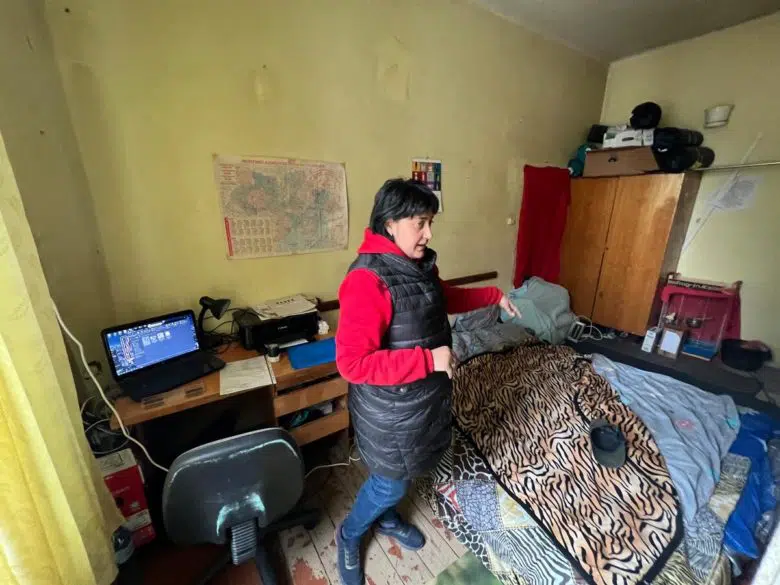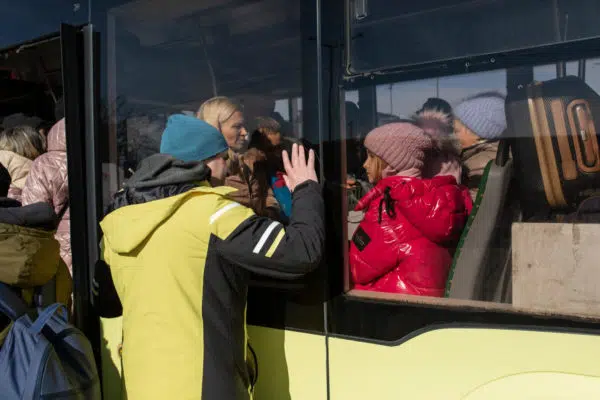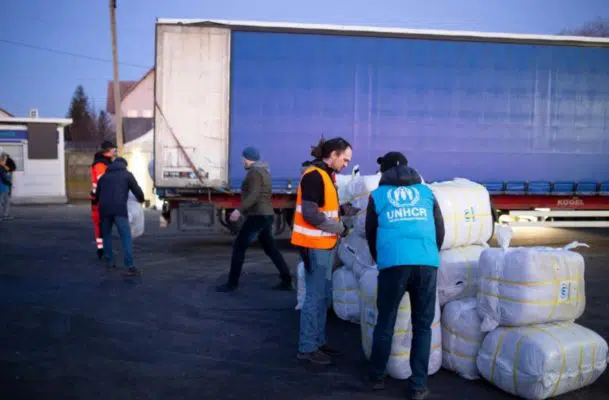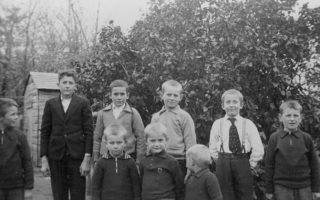
Rymma Mytrak, 35, runs a hostel she set up for displaced Ukrainians from a small office where her family also sleeps. © UNHCR/Victoria Andrievska
By Victoria Andrievska in Velykyi Bereznyi, Ukraine
As families fled west to escape fighting, Rymma Mytrak came up with a plan and with help from her neighbours opened a shelter for 80 people within days.
Among them is Victor Nastych, who arrived with his wife and daughter after fleeing their home in Brovary, an eastern suburb of the capital Kyiv, and was grateful for the offer of accommodation and warm food.
“I think there should be a monument glorifying Rymma,” Nastych says. “She has no property, no house. She does everything for people. She goes to the village council and asks for help. Many people know her and try to help.”
With an estimated 7.1 million people currently displaced inside Ukraine, UNHCR, the UN Refugee Agency is supporting the expansion and establishment of reception centres and providing relief items and other forms of support to those in need. So far, UNHCR has supported the expansion of more than 70 reception centres around the country, each of which can host around 250 displaced people.
As part of these wider efforts, the agency recently provided the shelter in Velykyi Bereznyi with thermal blankets to help keep residents warm as nighttime temperatures drop close to freezing.
“Every minute is stressful”
The team that delivered the blankets and met with residents to assess their needs included Nadiia Vakhovska, who recently joined UNHCR Ukraine and knows from personal experience what it means to flee your home.
“In 2014, there was heavy fighting in Luhansk where I am from. Me and my husband packed a small bag and left, hoping we will come back in just a few weeks. But we never returned,” Vakhovska explains.
She and her husband moved several times before settling in Bucha, a small town 30 kilometres from Kyiv, which in recent days has been the focus of global attention due to the horrific images of people’s bodies lying in the streets. The town was previously a haven for others displaced from eastern Ukraine in 2014 and 2015, who took advantage of the cheaper accommodation and proximity to the employment opportunities of the capital.
When Bucha first came under heavy bombardment at the start of the current conflict, Vakhovska was forced to flee again when their house was irreparably damaged. Now, she hopes to use her experience to help others suffering displacement for the first time.
“Knowing what it is to be a displaced person, I now can offer support and advise to other people,” Vakhovska says. “We overcame the consequences of the first displacement. It gives us hope that we will be able to manage the second displacement too. But despite having this experience and knowledge, it is very difficult and painful. Every minute is stressful.”
PLEASE DONATE TO SUPPORT UKRAINE
Originally published by UNHCR on 07 April 2022.





